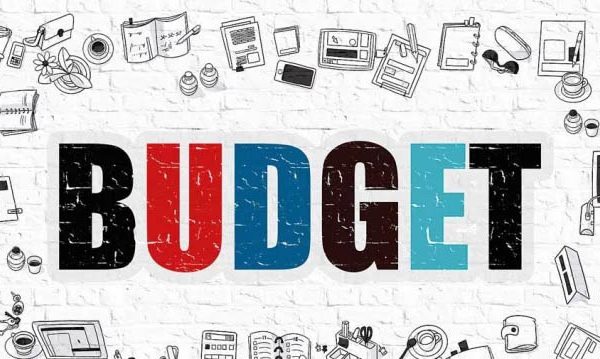New budget, new hopes?
- Update Time : Thursday, July 3, 2025

—Muhammad Raihan Uddin—
The national budget for the fiscal year 2025–26 is a big step forward in improving Bangladesh’s social safety net programs (SSNPs). With rising inflation, growing hardship, and increasing demand for transparency, the government looks to have taken new steps to better help the most vulnerable people in the country.
This time, the focus is on making the system more efficient, transparent, and better targeted. The number of schemes will be reduced from 140 to fewer than 100. 38 of these will be grouped as “pro-poor” programs, focusing on the most vulnerable communities. This decision follows repeated calls from economists, civil society, and development partners to drop scattered, less useful programs and remove non-welfare items from the SSNP budget.
The allocation for SSNPs in FY 2025–26 is expected to be Tk 116,731 crore, which is 14.78% of the total budget and 1.87% of GDP. Around 10 lakh more people will be added as beneficiaries. Monthly allowances under major programs will also increase by Tk 50 to Tk 100. These changes are happening despite financial pressure due to low revenue and high government spending on interest payments, subsidies, and salaries. This shows the government is committed to supporting the poor during hard times.
Several key programs stand out among the 38 “pro-poor” schemes. The Old Age Allowance will now be Tk 650 per month, up from Tk 600, and will cover 1 lakh more people, raising the total to over 61 lakh. The Allowance for Widowed, Deserted, and Destitute Women will rise from Tk 550 to Tk 650, and 1.25 lakh new beneficiaries will be added to the existing 27.75 lakh.
For people with disabilities, the monthly allowance will rise from Tk 850 to Tk 900. The number of beneficiaries will grow by 2 lakh. Under the Mother and Child Benefit Program, the monthly support will increase from Tk 800 to Tk 850, with coverage rising from 16.50 lakh to 17.71 lakh.
Food support is also expanding. The Food Friendly Program will now serve 55 lakh families with 10 lakh tons of rice for six months instead of five. For daily wage earners, the Employment Generation Program for the Poorest will raise the wage from Tk 200 to Tk 250 for up to 40 days a year. The program will now cover 6 lakh people, up from 5.18 lakh.
These changes show the government is moving away from running too many scattered programs. Instead, it wants fewer, more organized, data-based schemes that target the poor. Grouping key programs under the “pro-poor” label will help track progress and align efforts with long-term poverty reduction goals.
Problems
The biggest concern for many experts is that the allowance amounts are still too low. While the increase is a good start, Tk 650 or Tk 850 a month is close to nothing in today’s economy, where prices of food, medicine, and utilities are much higher than before. Economists and civil society groups have recommended a minimum of Tk 3,000 per month per beneficiary to help people truly cope with living costs.
Another persistent issue is the accuracy of targeting. According to recent data, only 44% of social protection benefits reach the poorest 40% of households, a decline from 51% in 2016. This shows that exclusion and inclusion errors are still significant. Many genuinely poor people are left out, while some non-poor manage to stay on beneficiary lists due to political influence or weak monitoring.
To fix this, the government will launch a new Dynamic Social Registry (DSR) in the next fiscal year, supported by the World Bank. This digital system will update household data in real time and help identify families in need during crises. If connected properly with the National ID system, this could greatly reduce mistakes, leakages, and misuse.
However, for the DSR to work well, different ministries need to cooperate, local governments must be involved, and digital access has to reach even remote communities. People also need digital literacy and proper complaint systems to ensure fair access and report any problems.
Urban poverty is another area that needs attention. In cities, many poor families still do not get support from SSNPs. Although some receive allowances, many others are left out due to weak targeting and rural-focused designs. As urban poverty rises, especially among informal workers, slum dwellers, and climate migrants, the government should launch special urban programs to reflect the challenges of city life, like unstable jobs, high living costs, and poor housing conditions.
The government has already started several climate-focused programs, such as the Fund for Climate Change, Gucchagram for climate victims, Coastal Climate Resilient Infrastructure Improvement, and development projects in haor and charareas. While these are good steps, they need to be better connected.
In addition, special focus should be given to urban climate resilience, which remains largely overlooked, despite rising risks in cities. Better coordination across ministries and alignment with climate adaptation goals will ensure that social safety nets not only protect lives in times of crisis but also help build long-term resilience among vulnerable communities.
The government deserves applause for its efforts to reform the SSNP system. Reducing the number of schemes, prioritizing the poor, expanding food and wage support, and introducing the DSR are all positive moves. These steps show a shift toward a more targeted, transparent, and data-driven approach.
Still, with poverty on the rise, the government must stay committed to improving adequacy, efficiency, and inclusion. The goal should not just be short-term survival, but helping people move from vulnerability to stability.
If designed and implemented well, social safety nets can be much more than temporary relief; they can become a cornerstone of social justice, human development, and long-term prosperity.
———————————————————————————–
Muhammad Raihan Uddin is a research associate at the Bangladesh Institute of Governance and Management (BIGM) and a postgraduate in Economics at the University of Dhaka. He is available at [email protected].


















